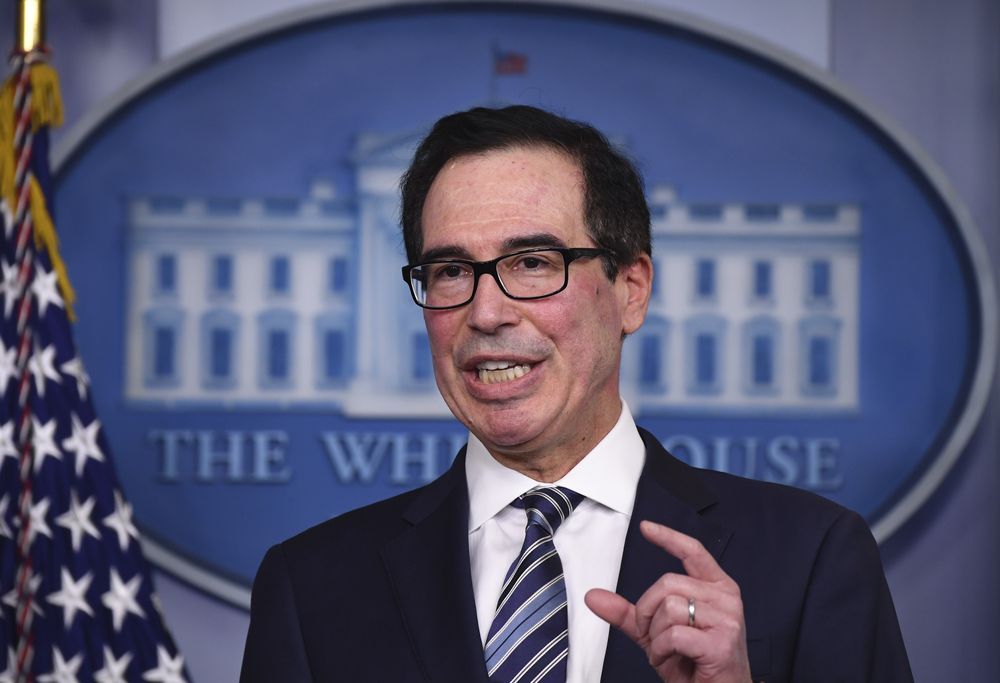Can the recent positive economic news in the US be trusted?

A few minutes every morning is all you need.
Stay up to date on the world's Headlines and Human Stories. It's fun, it's factual, it's fluff-free.
On Wednesday, June 10, United States Treasury Secretary Steve Mnuchin stated, “America’s economy has begun to rebound” from the COVID-19 crisis.
Two days earlier, the National Bureau of Economic Research (NBER) said the country had officially entered a recession in February, ending what had been the longest period of sustained growth in recorded history.
These two announcements, coming in the same week, illustrate the frequently contradictory economic messages that American citizens have been receiving. The Trump administration has attempted to paint a sunny picture of the economy, latching onto all good news as proof that the country is resurgent. In the meantime, stock markets have proven volatile and millions remain out of work.
Is the US economy rebounding?
Mnuchin’s testimony in front of the Senate Small Business and Entrepreneurship Committee on Wednesday cited a range of statistics meant to illustrate that the US economy is on the mend. His testimony follows a period in which much of the nation’s workforce was let go or temporarily put on leave and businesses throughout the country were largely brought to a standstill due to the COVID-19 pandemic
The impact of the crisis was apparent early on, with the stock market falling to its lowest level in a generation in mid-March. Economists warned that a global recession was all but certain at that point, but the negative trends were only beginning. In the first week of April, unemployment numbers achieved their own record by reaching 16.8 million in three weeks.
But it didn’t take long to see signs that the US economy might shake off the crisis.
In late April, while much of the country was still unemployed, the stock market experienced a remarkable resurgence. In early June, markets were again setting record highs, and President Donald Trump was quick to tout the news on Twitter.
The country received even more good news on June 5 when the unemployment numbers unexpectedly dropped from 14.7% in April to 13.3% in May. The president held an impromptu press conference to speak on the unexpected news, calling it “the greatest comeback in American history.”
With those positive economic indicators, Mnuchin’s assertion that “our recovery is underway” understandably made headlines. On Thursday, Mnuchin expanded on his optimistic outlook in a Fox Business Network interview, stating that he expected a “gigantic fourth quarter” for the US economy.
“We’re going to be opening back business and people are going to continue what they do. They are going to live. They are going to shop. They are going to eat out. They are going to enjoy restaurants and travel and entertainment and we will go back to a normal world.”
Is everything as it appears?
Economists have been quick to tamp down some of that enthusiasm, warning that the recent stock market highs misrepresent the state of the markets because only a few companies have seen large gains while most are still down by at least 20%. As such, the stock market’s recovery is “unbalanced,” with wealth consolidating in a few companies while the rest are left out in the cold.
Further eroding the positive messaging of the Trump administration were reports on June 6 that the strong job numbers were the result of a “misclassification error.” The error meant that the true unemployment rate was 16.3%. However, that error was also present in the April report, which should have shown an unemployment rate of 19.7% This means that the drop was real, but that the unemployment rate is still disconcertingly high.
Furthermore, weekly unemployment claims continue to soar, with this week’s report finding that 1.5 million workers filed for unemployment for the first time last week. Since the crisis began 12 weeks ago, 44.1 million unique claims have been filed.
Some good news is that weekly claims are on a downward trend and that the economy added 2.5 million jobs in May. This is an indication that some companies are reopening and hiring or rehiring employees.
Still, the new jobs added in May represent just over 10% of the 22 million jobs lost in March when much of the country first began entering lockdowns and following social distancing guidelines. Furthermore, with multiple states experiencing a surge in COVID-19 cases after attempting to reopen for business, the stock market has once again plummeted at rates similar to those seen in March.
What is a recession?
On June 8, the NBER, which tracks the “chronology of the peaks and troughs of U.S. business cycles,” determined that the US had entered a recession in February 2020. Up until that month, the economy had been in an expanded period of expansion dating back to June 2009, for a total of 128 months. This was the longest expansion on record since 1854.
The NREB defines a recession as “a significant decline in economic activity spread across the economy, normally visible in production, employment, and other indicators. A recession begins when the economy reaches a peak of economic activity and ends when the economy reaches its trough. Between trough and peak, the economy is in an expansion.”
The NREB also states that “domestic production and employment” are the main factors used for determining whether the economy is in a recession or expansion period.
Have a tip or story? Get in touch with our reporters at tips@themilsource.com




Comments ()